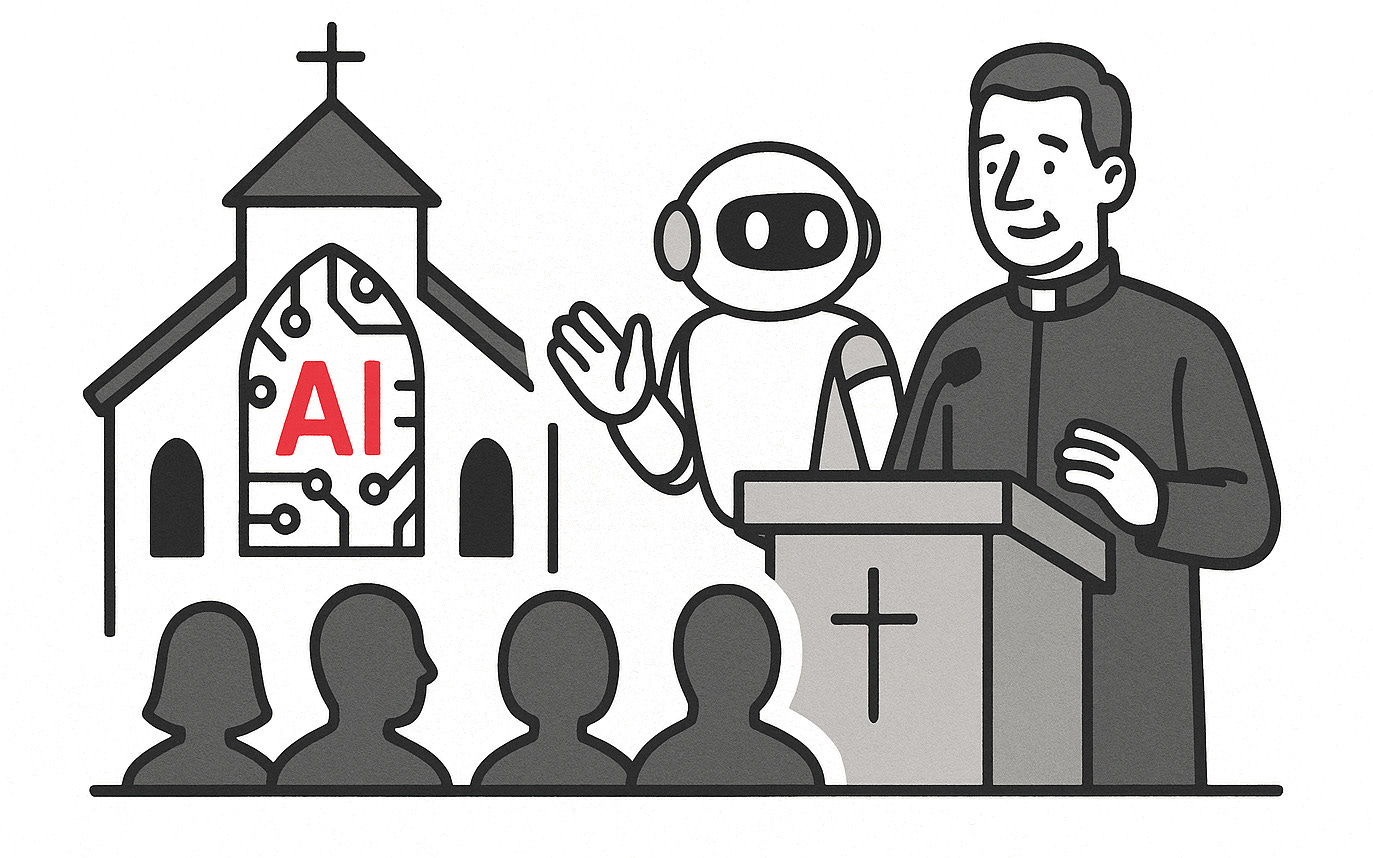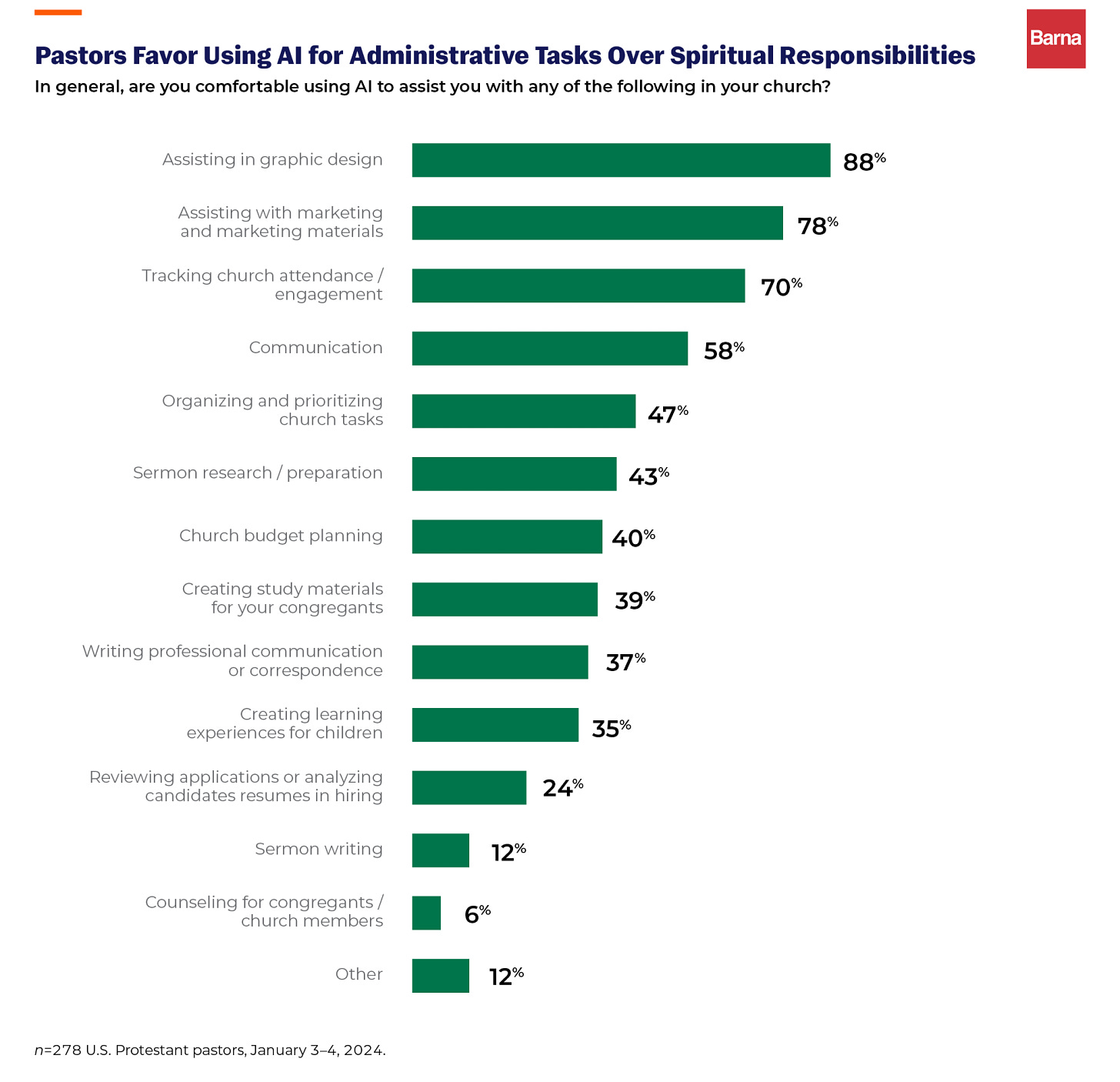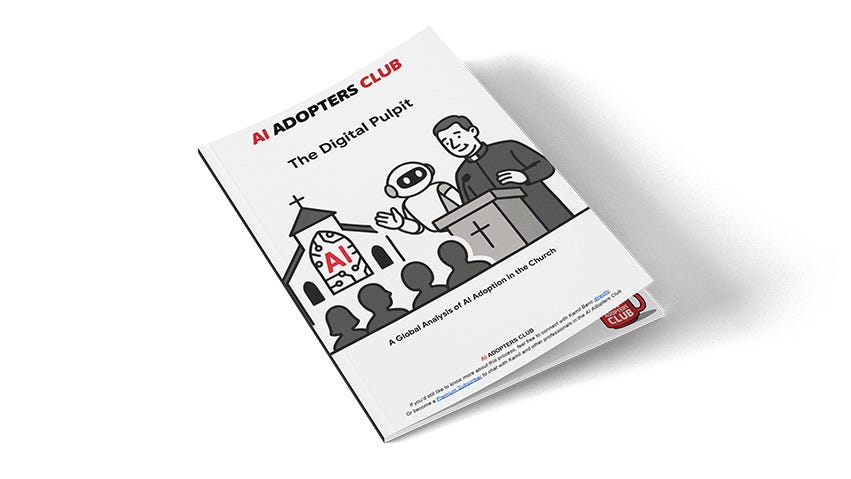The Digital Pulpit: AI Adoption In The Church
The $2.5 billion faith-tech sector just delivered a masterclass in AI adoption that most Fortune 500s are still trying to figure out.
Hi Adopter,
While tech giants stumble through AI implementation disasters and consultants peddle theoretical frameworks, an unlikely sector has quietly mastered something most organizations get wrong: strategic AI adoption with clear boundaries.
Churches are deploying AI at an unprecedented scale. Nearly half of all church leaders now use AI tools, representing an 80% increase from the previous year. But here's what makes their approach different from the corporate chaos we see everywhere else: they know exactly where to draw the line.
The Great Divide Strategy
The smartest church leaders have solved the "AI everywhere" problem by creating what data shows is a deliberate bifurcation. Research from Barna Group reveals a striking pattern: 88% of pastors are comfortable using AI for graphic design, but only 12% would use it for sermon writing. A mere 6% would deploy it as a counseling tool.
This isn't technological timidity. It's strategic precision.
They've identified the operational zones where AI delivers clear ROI without touching the core value proposition that requires human judgment, empathy, and institutional knowledge. Administrative tasks like improving communication efficiency account for 40% of AI adoption, freeing up humans for the work that actually matters.
The Failure Archive
The sector's learning curve includes spectacular failures that read like a corporate governance horror story. Catholic Answers launched an AI chatbot called "Father Justin" that claimed it could perform valid baptisms using Gatorade and offered to hear confessions. The backlash forced them to "laicize" the character within days.
But here's the crucial difference: they failed fast, failed publicly, and failed cheaply. No million-dollar implementation disasters. No board-level crisis management. Just rapid course correction with clear lessons learned.
The Global Strategy Split
The most intriguing development is how different organizational cultures are approaching AI governance. The Vatican is engaging directly with executives from Google and OpenAI to shape global ethical frameworks. Meanwhile, churches in the Global South are developing their own AI ethics to avoid what they term "digital colonialism."
The results speak volumes. Early adopters report measurable improvements: 40% increases in small group engagement and 50% increases in retention through AI-powered community matching algorithms.
But the most revealing insights come from what happens when organizations get the governance wrong, and how the smartest leaders are building systems that avoid these pitfalls entirely…
Want the complete strategic analysis? Download our comprehensive 22-page report that reveals:
The exact four-phase implementation blueprint driving 80% year-over-year adoption growth
Detailed case studies of high-profile AI failures and the governance lessons they reveal
How different global regions are developing AI ethics frameworks to avoid cultural bias
The "co-pilot doctrine" that's transforming operational efficiency without replacing human judgment
Predictive analytics frameworks for identifying stakeholder disengagement before it happens
A complete toolkit of platforms and applications organized by ministry function
Download The Digital Pulpit: A Global Analysis of AI Adoption in the Church 👇






